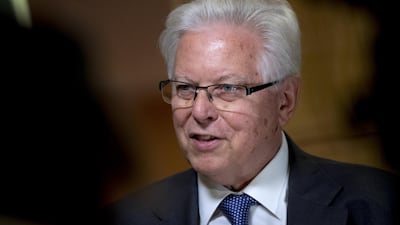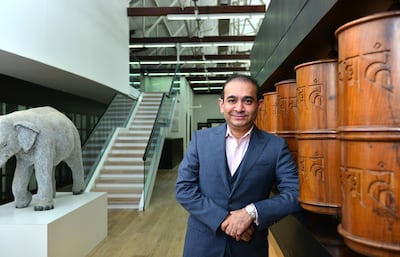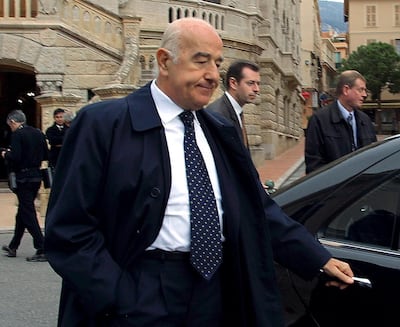Stefano Pessina
Walgreens Boots Alliance is facing a reckoning and it’s hitting the drugstore chain’s billionaire chief executive, Stefano Pessina, in the wallet.
Beset by bruising retail competition, changing drug-price economics and consolidation among its rivals, the company saw its shares fall last week by the most since August 2014, sinking 13 per cent to close at $55.36. The plunge came after the chain posted lower second-quarter profits and cut its guidance for the fiscal year.
Mr Pessina, who owns 15.4 per cent of the company, saw his net worth decline by $1.18 billion, from $11.35bn to $10.17bn, according to the Bloomberg Billionaires Index.
There were few bright spots for Walgreens in the past three months, a period Mr Pessina said was the toughest in his tenure as chief executive. At its pharmacy counters, the source of two-thirds of its US sales, Walgreens filled more prescriptions but was hurt by smaller reimbursements from insurers. Meanwhile, same-store retail sales fell 3.8 per cent in the quarter.
Makers of brand-name drugs haven’t been raising prices as rapidly as before, limiting a source of growth. At the same time, wholesale prices for generic medicines aren’t dropping as fast, depriving the company of significant mark-ups.
Mr Pessina said Walgreens management saw the trends coming but wasn’t quick enough in putting countermeasures in place. He promised things would eventually turn around.
“We still believe in this market. We still believe that this market is a market for the future, a big market with continuous growth,” Mr Pessina said, emphasising that he wouldn’t use cash to overpay for a big acquisition.
The Italian-born businessman, who resides in Monaco, has made and lost billions from his Walgreens holdings. He first received a stake in Walgreens in 2012 when the company bought 45 per cent of Alliance Boots, the British drugstore chain he then chaired. After Walgreens acquired the remaining 55 per cent of Alliance Boots at the end of 2014, Mr Pessina’s net worth was almost $11.7bn. His wealth peaked at $15.3bn in July 2015.
Philip Day
Retail tycoon Philip Day is bidding for Bonmarche after buying a majority stake in the UK clothing chain through his Dubai-based company Spectre Holdings.
Mr Day is required to make a mandatory cash offer for Bonmarche at about 11.44 pence a share after acquiring 52 per cent of voting rights in the company at that price, according to a statement on Tuesday. The price is 36 per cent below Monday’s closing level for Bonmarche shares.
If successful with the Bonmarche acquisition, Briton Mr Day plans to undertake a strategic review and look to cut costs, potentially closing stores that are identified as under-performing, according to last week’s statement.
Bonmarche, based in Wakefield, northern England, operates more than 300 stores selling women’s clothing. Its stock has plunged 96 per cent from its peak in 2015.
Mr Day, who owns retailer Edinburgh Woollen Mill, made a last-minute bid to buy collapsed UK fashion brand LK Bennett, the Sunday Times reported last month. The 53-year-old investor also was in talks to buy a number of Marks & Spencer Group and House of Fraser stores that are scheduled to close, The Telegraph said in February. He previously acquired brands such as Austin Reed, Jaeger, Jane Norman and Peacock.
Nirav Modi
A UK court rejected bail for Indian diamond tycoon Nirav Modi, whose jewels once adorned stars from Bollywood to Hollywood. In a decision on March 29, a judge said Mr Modi was a flight risk.
"There are substantial grounds to fear failure to surrender," magistrate Emma Arbuthnot told a Westminster court, adding that Mr Modi's application in 2017 for a visa to the Pacific island nation of Vanuatu exacerbated those concerns.
The 48-year-old fugitive was arrested in central London on March 20 after he went into a bank to open an account and a member of staff contacted police. He was detained more than a year after Indian authorities alleged he was involved in a $1.8bn bank fraud. Mr Modi is fighting extradition to India.
Clare Montgomery, the lawyer representing him, told the court that Mr Modi was not a fugitive, was leasing a property in London under his own name and had made arrangements to surrender voluntarily on March 25.
Indian authorities have sought Mr Modi's arrest since February 2018, when they alleged companies he controlled defrauded the state-owned Punjab National Bank by using fake financial documents to get loans to buy and import jewels. Mr Modi denies the allegations.
The son of a diamond merchant, Mr Modi built an international jewellery empire that stretched from India to New York and Hong Kong before the allegations were levelled.
Joseph Safra
Brazilian billionaire banker Joseph Safra won initial approval to build a 305-metre tower in the shape of a tulip next to his Gherkin building in London’s financial district.
The Gherkin, which Mr Safra bought for about £726 million (Dh3.51bn) in 2014, was among the first of a new generation of towers built in London’s Square Mile.
The Tulip would offer visitors rides in so-called "gondola pods" that loop around the outside of the building’s glass petals, according to the project’s website. The plans also include space for restaurants, bars, a viewing gallery and education spaces, as well as glass slides connecting some floors.
The plans, waved through by the City of London Corporation’s Planning and Transportation Committee, could now be subject to further approval by the mayor of London and government ministers before work can begin.
The proposal prompted objections from heritage groups including Historic Royal Palaces, which said Mr Safra’s plan would diminish views of the Tower of London. The building would be the second-tallest in London, after the Shard. The developers estimate that construction could be completed in 2025.
Mr Safra, who was born in Beirut and of Syrian origin, runs the Brazilian banking and investment empire Safra Group. Among the group's banks are Banco Safra in Brazil, Safra National Bank of New York in the US and Safra Sarasin in Switzerland. Its real estate holdings include New York City's 660 Madison Avenue office complex.
The world’s richest banker, Mr Safra has a net worth of $18.5bn, according to the Bloomberg Billionaires Index.



